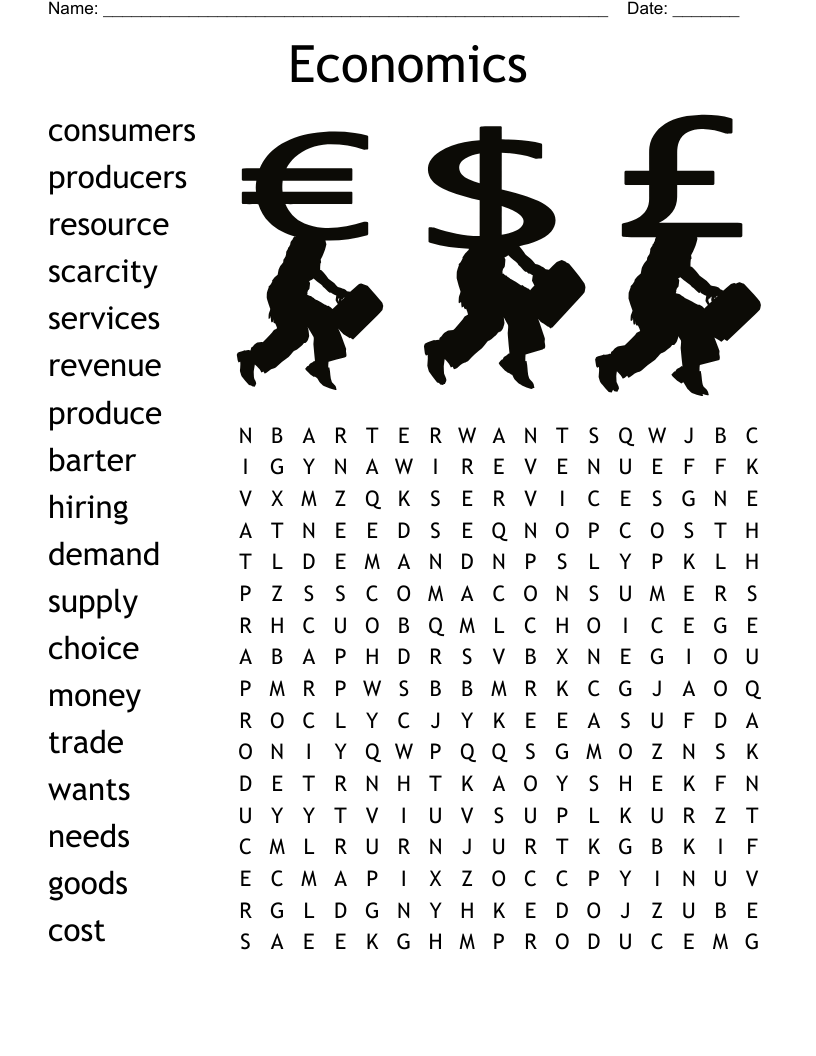Understanding economics requires familiarity with certain key vocabulary words. These terms are essential for grasping economic concepts and analyzing economic trends. Whether you are a student studying economics or someone interested in the field, having a good grasp of these words can greatly enhance your understanding of the subject.
From “supply and demand” to “inflation” and “monopoly,” economics is filled with specialized terminology that may seem intimidating at first. However, with a little guidance, you can quickly get a handle on these important words and their meanings.
Key Economics Vocabulary Words
- Supply and Demand: The relationship between the quantity of a good that producers are willing to produce and the quantity that consumers are willing to buy at a given price.
- Inflation: A general increase in prices and fall in the purchasing value of money.
- Monopoly: A market structure in which a single seller controls the supply of a good or service, giving them significant market power.
- GDP (Gross Domestic Product): The total value of all goods and services produced within a country’s borders in a specific time period.
- Interest Rate: The cost of borrowing money, usually expressed as a percentage.
Supply and demand is a fundamental concept in economics that explains the relationship between the availability of a product and the desire for that product. When demand exceeds supply, prices tend to rise, and vice versa. Understanding supply and demand dynamics is crucial for predicting market trends and making informed business decisions.
Inflation is a key economic indicator that measures the rate at which prices are rising in an economy. High inflation can erode the purchasing power of consumers, leading to decreased consumer spending and economic instability. Central banks often use monetary policy tools to control inflation and maintain price stability.
Monopoly refers to a market structure in which a single company dominates an industry, giving them the power to set prices and control supply. Monopolies can limit competition, leading to higher prices for consumers and reduced innovation in the market. Antitrust laws are designed to prevent monopolistic behavior and promote fair competition.
Understanding GDP is essential for measuring the economic performance of a country. GDP provides a snapshot of a nation’s overall economic health and can help policymakers make informed decisions about fiscal and monetary policy. Changes in GDP can signal economic growth or contraction, influencing investment decisions and government policies.
Interest rates play a critical role in the economy by influencing borrowing and spending behavior. Lower interest rates can stimulate economic activity by encouraging consumers and businesses to borrow and spend, while higher interest rates can help control inflation by reducing spending and investment. Central banks often adjust interest rates to achieve specific economic goals, such as price stability and full employment.
By familiarizing yourself with these key economics vocabulary words and their meanings, you can deepen your understanding of economic principles and trends. Whether you are a student, business professional, or simply an interested observer, having a strong grasp of economic terminology can empower you to analyze and interpret economic data with confidence.
